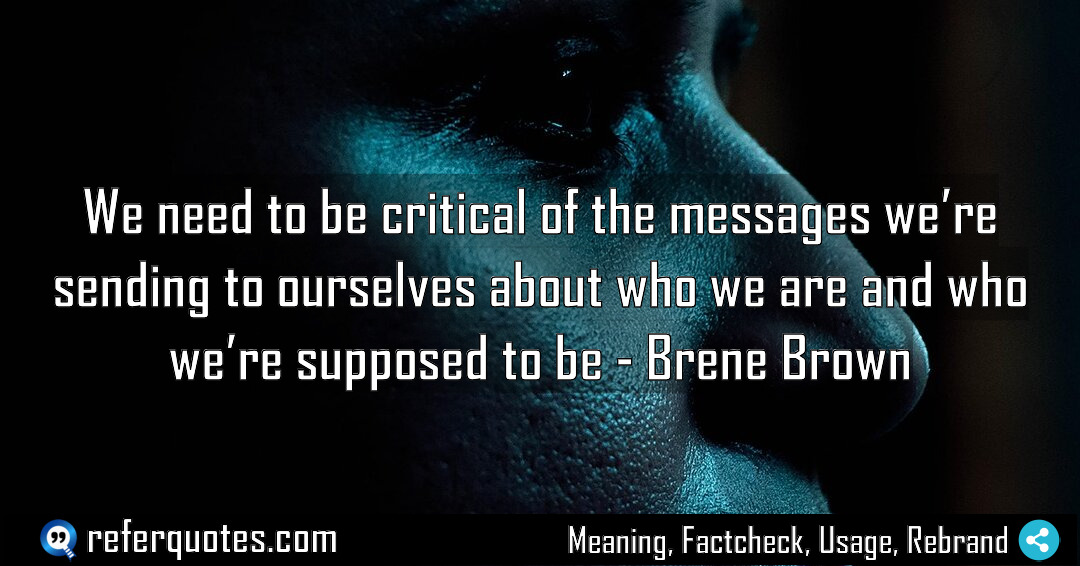We need to be critical of the messages… because they shape our entire reality. It’s about auditing the internal stories that dictate your confidence, your choices, and your capacity for joy.
Share Image Quote:Table of Contents
Meaning
This quote is a call to audit the internal narrative that runs on a loop in your head—the one that tells you what you’re capable of, what you deserve, and who you’re allowed to be.
Explanation
Look, we all walk around with this invisible script. It’s written by our parents, our teachers, our culture, our past failures. And the thing is, we rarely stop to question it. We just accept “I’m not a math person” or “I’m not leadership material” as absolute truth. Brene is telling us to get curious. To challenge that script. Because that internal monologue isn’t just background noise; it’s the director of your life. It dictates your confidence, your choices, your willingness to try new things. When you start to dissect those messages, you realize you can edit them. You can even rip out whole pages and write new ones. That’s the real work.
Quote Summary
| Context | Attributes |
|---|---|
| Original Language | English (3668) |
| Category | Education (260) |
| Topics | expectation (16), identity (102), self awareness (56) |
| Literary Style | didactic (370) |
| Emotion / Mood | reflective (382) |
| Overall Quote Score | 77 (179) |
Origin & Factcheck
This wisdom comes straight from Brené Brown’s 2012 book, Daring Greatly, which was published in the United States. It’s a cornerstone of her research on vulnerability and shame. You sometimes see the sentiment floating around unattributed, but the specific phrasing is definitively hers.
Attribution Summary
| Context | Attributes |
|---|---|
| Author | Brene Brown (257) |
| Source Type | Book (4032) |
| Source/Book Name | Daring Greatly (39) |
| Origin Timeperiod | 21st Century (1892) |
| Original Language | English (3668) |
| Authenticity | Verified (4032) |
Author Bio
Dr Brene Brown is the author of books such as Daring Greatly and The Power of Vulnerability. The TED talk and Netflix production based on her research reached out to millions of audience. She researches effects of courage and vulnerability in shaping people's work and relationships. She leads the Brené Brown Education and Research Group and provides evidence-based insights into practical tools to help people train themselves
Official Website |Facebook | X | Instagram | YouTube |
Where is this quotation located?
| Quotation | We need to be critical of the messages we’re sending to ourselves about who we are and who we’re supposed to be |
| Book Details | Publication Year/Date: 2012; ISBN/Unique Identifier: 9781592407330; Last edition. Number of pages: 287. |
| Where is it? | Approximate page from 2012 Gotham edition |
